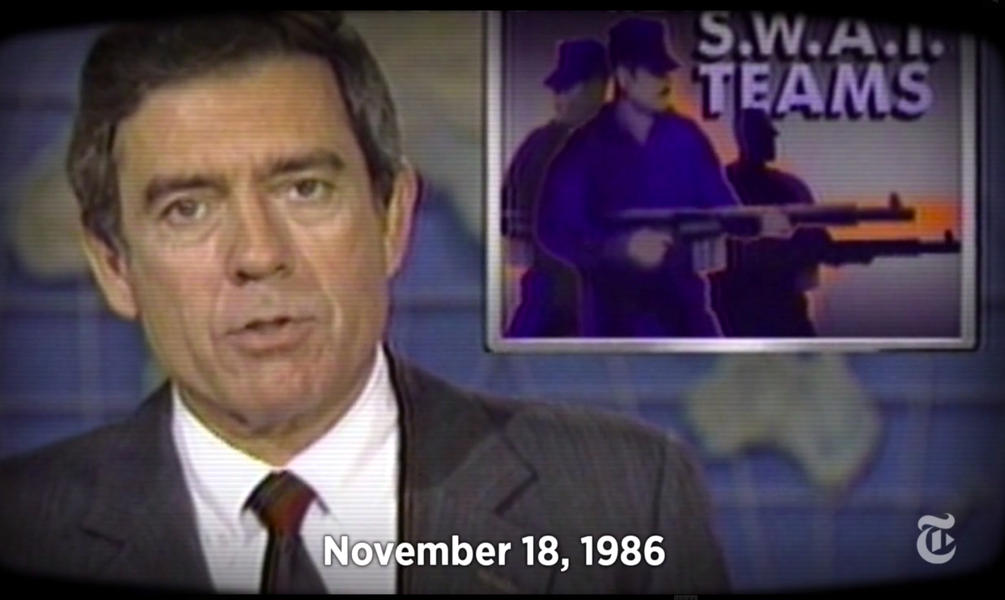After Ferguson, Retro Report digs into the origins of SWAT teams and their 'mission creep'


A free daily email with the biggest news stories of the day – and the best features from TheWeek.com
You are now subscribed
Your newsletter sign-up was successful
SWAT teams are in the news after the local and county police in Ferguson, Missouri, used heavy force and military-grade armaments to deal with largely peaceful protests last month. But between "swatting" — where someone calls for a SWAT raid on an acquaintance or celebrity, as a horrible "prank" — and other botched raids, the paramilitary police units had their share of bad press before that.
Retro Report looked back at the "long and complicated history" of SWAT teams, from their beginnings in late-1960s Los Angeles to the "mission creep" that has followed. The name SWAT — Special Weapons and Tactics — was coined by future LAPD chief Daryl Gates (he originally wanted to call it Special Weapons Attack Team, but was dissuaded).
From their start in L.A., SWAT teams spread across the country, gaining cultural relevance with a 1970s TV show — and power in the 1980s, when Ronald Reagan declared "war" on drugs. Now, more than 80 percent of SWAT raids are drug busts — or attempted drug busts — mostly in private homes. After the terrorist attacks of Sept. 11, 2001, local police forces got even bigger weapons and more heavily armored transportation.
The Week
Escape your echo chamber. Get the facts behind the news, plus analysis from multiple perspectives.

Sign up for The Week's Free Newsletters
From our morning news briefing to a weekly Good News Newsletter, get the best of The Week delivered directly to your inbox.
From our morning news briefing to a weekly Good News Newsletter, get the best of The Week delivered directly to your inbox.
Retro Report tells its story with the help of Peter Kraska at Eastern Kentucky University, who has studied SWAT teams for more than 20 years, and former LAPD SWAT leader Ron McCarthy. There are pros and cons, and some terrible stories of raids gone wrong. You can read more about the history at Retro Report partner The New York Times. --Peter Weber
A free daily email with the biggest news stories of the day – and the best features from TheWeek.com
Peter has worked as a news and culture writer and editor at The Week since the site's launch in 2008. He covers politics, world affairs, religion and cultural currents. His journalism career began as a copy editor at a financial newswire and has included editorial positions at The New York Times Magazine, Facts on File, and Oregon State University.
